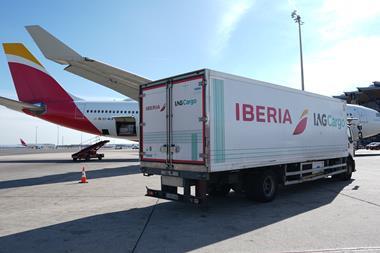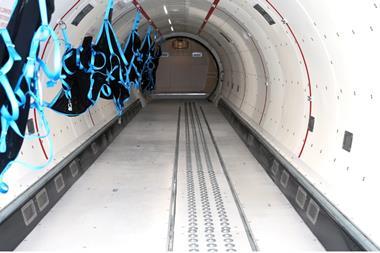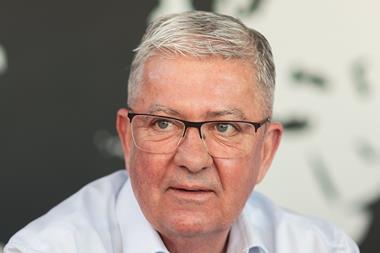Britain’s next Prime Minister, either Boris Johnson or Jeremy Hunt, has been warned by the FTA that a ‘No deal Brexit’ would be the “worst possible outcome” for the UK economy, while also citing the “fragility” of government plans.
The result of the Conservative Party leadership contest, and thus the next resident of 10 Downing Street, will be announced tomorrow (Tuesday).
Both candidates are ready to leave the European Union (EU) without a deal at the end of October this year, although Johnson is prepared "do or die" to leave on that date.
FTA, representing the UK logistics industry, has written to both candidates to urge them to consider the impacts of a No deal Brexit on UK-EU supply chains.
It also wants the next Prime Minister, widely assumed by political pundits to be Boris Johnson, to ensure the co-ordination of logistics activities at “a high level to minimise and manage these effects in order to keep Britain trading”.
James Hookham, deputy chief executive for FTA, who signed the letter to both men, said: “FTA has worked closely with government over the past three years to develop contingency plans for a No Deal Brexit.
“We remain hugely concerned at the fragility of these plans and the state of readiness of traders, carriers and agencies on both sides of the border to implement them flawlessly as early as 31 October.
“As an apolitical organisation, we do not dispute the decision of the Referendum but we are convinced by our Members that a ‘No Deal’ Brexit would be the worst possible outcome for the economy and is to be avoided at all costs.”
FTA is encouraging its members to prepare for “all eventualities”, but in order to do so, they need “urgent action” from government, starting with the extension of easements previously conceded for the earlier Brexit deadline of March 29 this year, some of which will have expired before October 31.
“We have offered FTA’s support to both candidates in the Tory party leadership election to provide advice and guidance moving into such a crucial period for the future success of the British economy.”
Hookham added that “many pieces of the jigsaw” remain incomplete if traders and hauliers are to continue to operate effectively after the end of October, but government preparations “seem to have stalled”.
He continued: “We need these procedures to be completed and pending questions to be clarified and answered as soon as possible Livelihoods are dependent on cross border trade, both in Ireland and on the mainland, and the clock is ticking if businesses are to adopt and adapt to new trading processes and learn new procedures.
“Most importantly, there needs to be certainty around what will happen at the Irish land border for the haulage businesses that will be the first to cross it on the first morning of a ‘No Deal’ Brexit.”
As part of the approach to both MPs, FTA has offered to brief Johnson and Hunt fully on the issues involved and potential areas of concern for its members, and also volunteered to join Hunt’s proposed Logistics Co-ordination Committee.
Hookham continued: “Britain’s supply chain is at the heart of business across the country and is a tightly interdependent operation which supports those trading both domestically and internationally.
“Focus on Brexit seems to have waned in government during the leadership election, but it is of vital importance that preparations are revived at the earliest possible opportunity.”
While the main text is similar in both letters, the first few paragraphs and the last sentence are carefully tailored to address the different no deal approach of the candidates in the leadership election campaign.
The letter to Hunt, the current foreign secretary who was on the remain side of the June 2016 referendum campaign to stay in the EU, is headed “Logistics Co-ordination Committee”.
It begins: “Your recent statements have acknowledged the essential role in the economy of the trade in goods between the UK and EU. FTA supports, shapes and stands up for the logistics interests of UK businesses and is the leading voice for continuity of supply chains during and after Brexit, how so ever it may be achieved.
“We welcome and applaud your intention to establish a Logistics Co-ordination Committee to ensure these activities receive the necessary focus and priority in Business and Government.
"As the only voice of all of Logistics in the UK, FTA would like membership of the Committee to donate our deep knowledge and unique perspective on the end-to-end supply chain process and the impact of Brexit.”
It ends: “Please can you confirm whether you will be extending an invite to FTA on your proposed Logistics Co-ordination Committee.”
The letter to Johnson, a key figure in the leave campaign during the 2016 referendum, is headed “Brexit and Logistics”.
It begins: “FTA supports, shapes and stands up for the logistics interests of UK businesses and is the leading advocate for continuity of supply chains during and after Brexit, how so ever it may be achieved.
"In contemplating a possible No Deal Brexit we urge you to consider carefully the impacts this would have on UK-EU supply chains and the need to ensure the co-ordination of logistics activities at a high level to minimize and manage these effects.
“As the only voice of all of Logistics in the UK, FTA would like to be involved in such co-ordination and donate our deep knowledge and unique perspective on the end-to-end supply chain processes and the parties involved.”
It ends: “Please can you confirm whether you will be prioritising the impact of Brexit on international logistics in your plans.”










